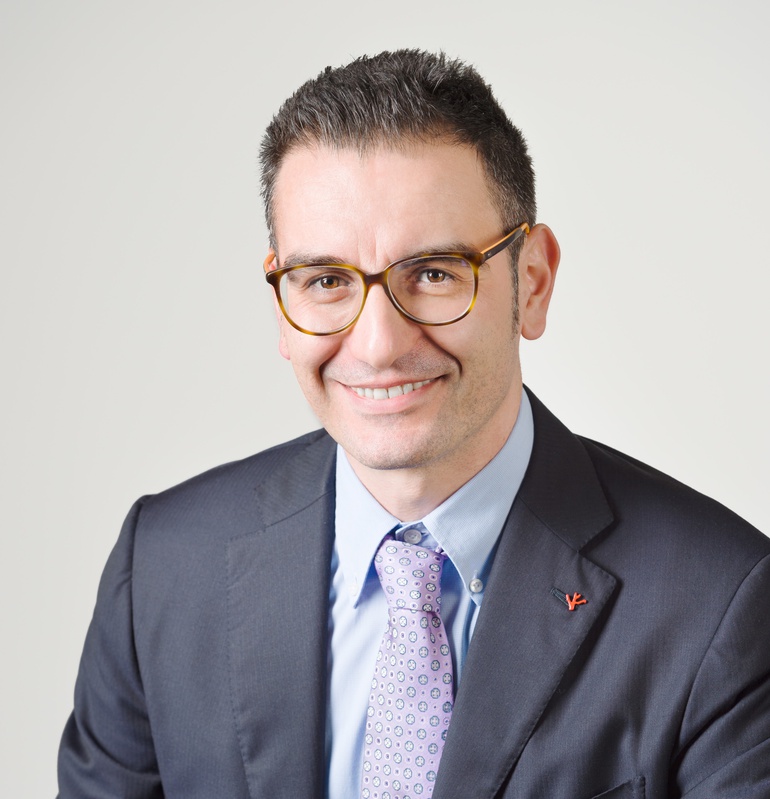Five minutes with a member: Mapei's Marco De Santis
29 Apr 2020
Grouped with Mapei’s pillars of internationalisation, specialisation and Research & Development, are ecological issues including the impact of products on the environment and health. We spent 5 minutes with Marco de Santis, Head of Technical & Deputy General Manager, to learn how Mapei is tracking in sustainability.
With shocks like the current pandemic, a changing climate and extreme weather events in mind, why is it essential that our focus and commitment to a net-zero future remain on track?
We must think about future generations. In Mapei’s opinion, it is essential to build awareness of sustainability, particularly in the building sector, which emits a large amount of greenhouse gases. We must work toward sustainable building and construction, using recycled materials and products that do not affect the health of our planet or people.
Many building products are considered to have numerous effects on the environment. From the most widely known effect of global warming caused by greenhouse gases, through to eutrophication, the anomalous growth of aquatic organisms, such as algae, due to a decrease in the density of aquatic fauna, or the transformation of pollutants into acidic substances which then causes acid rain, a reduction in the amount of natural resources, and many more.
As a business, we invest 12% of turnover into Research & Development, with a focus on the betterment of our products to meet our sustainability objectives. At our head office in Italy, we conduct life cycle assessments (LCA) of our products to evaluate their environmental impact from when the raw material is extracted through to production, transportation, packaging, and waste materials.
By using the LCA methodology, we can calculate the impact and use this data for Research & Development. LCA results are declared in certified documents called EPD (Environmental Product Declarations). In the construction sector, EPDs help architects, engineers, and other users have a better understanding of a product’s sustainability characteristics and its impact on the environment. Overseas, green ratings for buildings, such as LEED and BREEAM, have implemented criteria for sustainability and impose specific requirements for construction based on the LCA method.

Mapei is recognised as a leader of innovative and sustainable building products and your fourth sustainability report is due out this year. While it’s yet to be published, are there some insights you can share with us ahead of the release?
We are about to publish our fourth Annual Mapei Sustainability Report. At this stage, the report is focused on our activities across Italy, however we hope to grow this report to include our global markets.
A key topic area for the report will be our focus on sustainable packaging. We are reducing the size of our packaging, reviewing how plastic is used, and incorporating recycled materials into our packaging. In Italy, we also have multiply bags that are certified to be recycled with paper. In September, we were awarded prizes at the Italian National Packaging Consortium for two projects that help reduce CO2 emissions.
Another important initiative is the circular economy. Mapei Australia has a product available to our customers called Re Con Zero Evo, an additive that transforms returned concrete into aggregates that can be re-used in new concrete. We are now studying additives for roads that allow a higher use of recycled pavement into the asphalt.
Mapei’s range of eco-sustainable products add to a project’s Green Star credits. What are some of the local stand-out projects Mapei has contributed to?
Mapei Australia has been fortunate enough to be involved in may GreenStar projects across Australia. A stand-out project that Mapei was proud to contribute to was the 6 Star Sunshine Coast University Hospital. Mapei provided levelling compound Ultraplan Eco, a fast hardening self-levelling compound with low VOC, as well as Mapegum WPS waterproofing Membrane, and Ultrabond Eco VS90 Plus low VOC adhesive, among other products for the installation of vinyl wall and floor coverings.
The health and safety of workers using Mapei products is a clear priority for the company. What innovations have been made in this area?
All Mapei products are provided with their SDS for the safety of the applicators. We are in the process of transitioning all solvent-based adhesives to water-based, for the safety of the user. We also have third party certification of our low VOC (volatile organic compound) emission products. Products with low VOC emissions, certified by Emicode EC1PLUS label, ensure the health of both applicators and final users. In our R&D labs we study these products in 12 emission chambers that mimic our indoor environment; this has allowed us to develop over 300 Mapei products that are certified as low VOC.
Mapei has been a member of the Green Building Council of Australia for 12 years. Why is it important for companies to work with Green Building Councils toward a net-zero future?
As a business, we strongly believe in eco-sustainable buildings, that can decrease the emissions of GHG (Greenhouse gases) that are responsible for climate change. All stakeholders must be involved in this change of mentality, including manufacturers, architects, engineers, and contractors. GBCA provides the industry with a platform to ensure we are all moving in the same direction to achieve our common goal.